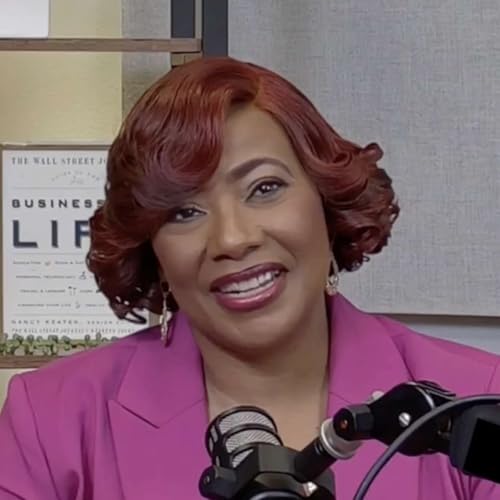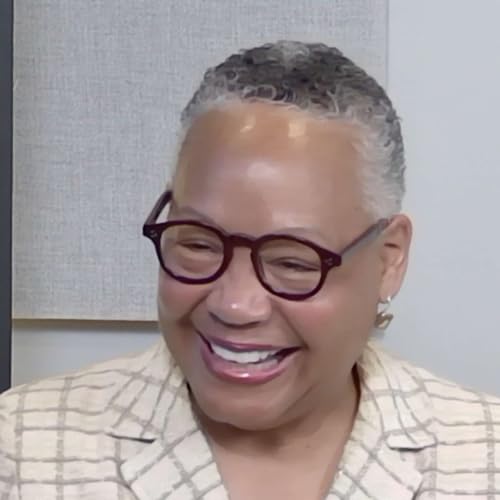Send us a text
LISA M BORDERS: THE OMNI-PRENEUR
There are legacy families in Atlanta, GA. Some are internationally known for the influence they have had on Georgia based businesses. Others have made different types of contributions to the metro area for generations, but most people only know the name of one family member. One of the goals of this podcast series is to look under the hood of success and examine some of the lesser-known components. That’s why you’ll learn a lot about family dynamics when you listen to the podcast episode about Lisa M. Borders.
If you’re from Atlanta and older than 70, you might identify her as the granddaughter of the late Wheat Street Church pastor, Reverend William Holmes Borders, Sr. If you’ve lived in town since the 1980s, though, you might remember her as a former President of the Atlanta City Council and Vice-Mayor. People who are long-term members of the area’s health community will know Lisa as the first person to lead a capital campaign for Grady Hospital and the person credited for financially rescuing the hospital system. In the world of sports, she’s known as a former CEO of the Women’s National Basketball Association (WNBA) and she’s closely tied to leading endeavors for women’s rights. She’s also chaired a global division for the Coca-Cola company.
Each of those accomplishments is noteworthy. Collectively, they make Lisa an omni-preneur. It’s a word she used to describe herself during the 90-minute interview she participated in for this edition of Atlanta Business League’s TELLING OUR STORY episode.
Lisa tells stories that most people have never heard about several of her high-profile positions. But she does something more. She explains the motivation for choosing to endure verbal abuse, such as being called a racial slur every single day, during one phase of her education journey. She describes why she allowed herself to be treated like a chess piece by one of the most powerful business leaders in the city. She also recalls, with joy, how what looked like projects likely to fail, turned into some of the biggest blessings in her life – to date.
The guiding factor in many of Lisa’s decisions is a chorus of voices that come from the elder members of her family. They taught leadership by the lives they lived, fortitude by the challenges they conquered and the benefits of loyalty based on a foundation of love by simply supporting each other to the best of their abilities.
One of the most incredible facts about the life of Lisa Borders is that it continues to evolve. The podcast ends with one of the projects she is developing in 2025.
The conversation with Lisa Borders is mind-changing in many ways. It explores education, corporate C-suite leadership, sports, politics and health care from the personal perspective of a woman who has made unique and powerful contributions to each industry. What you will learn at the end of this podcast is that she has set her sights on doing even more in the years to come.
 2026/02/0628 分
2026/02/0628 分 33 分
33 分 2025/09/3028 分
2025/09/3028 分 30 分
30 分 2025/07/2733 分
2025/07/2733 分 2025/06/1231 分
2025/06/1231 分 2025/04/2827 分
2025/04/2827 分 2025/03/2429 分
2025/03/2429 分
